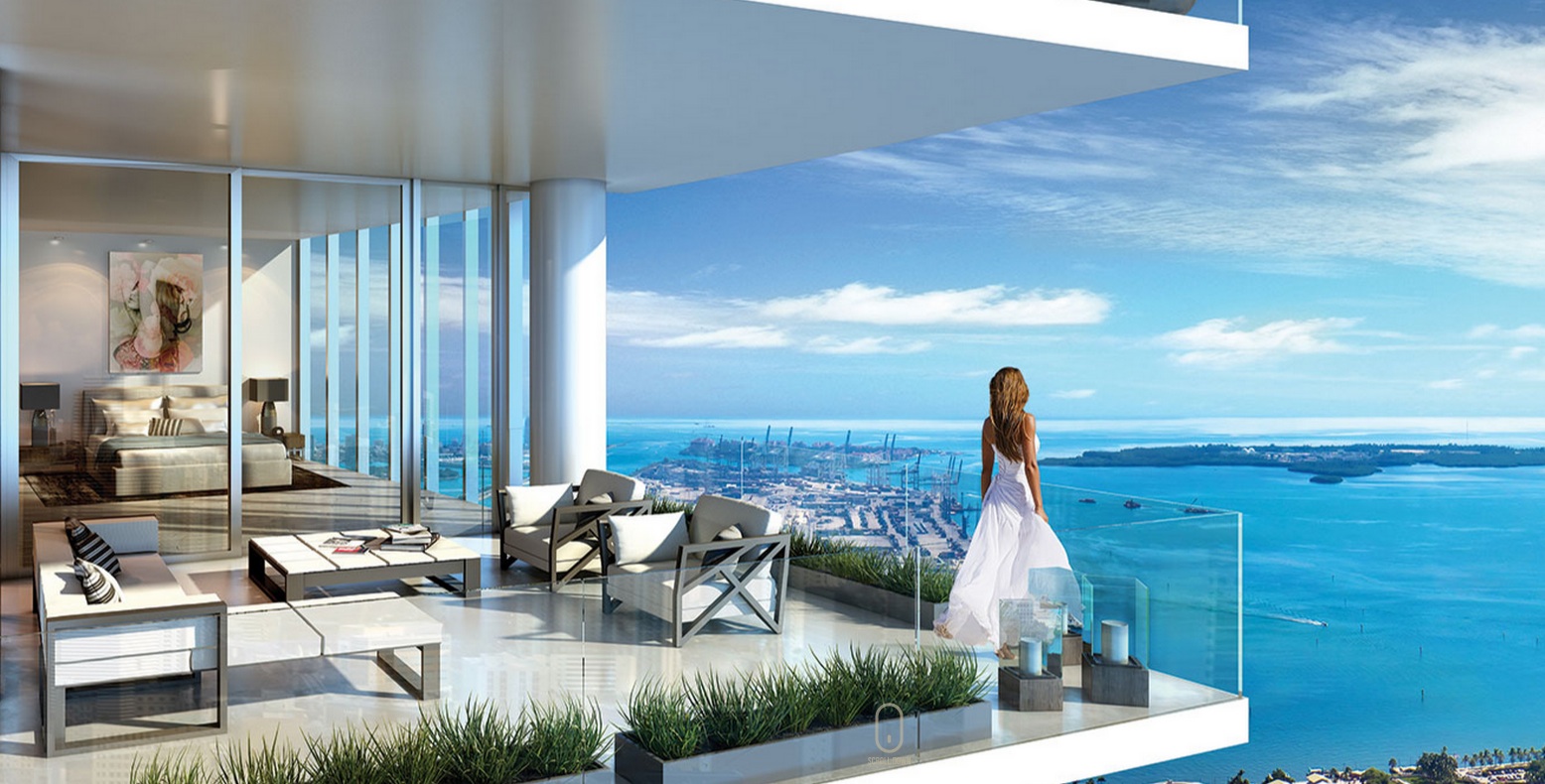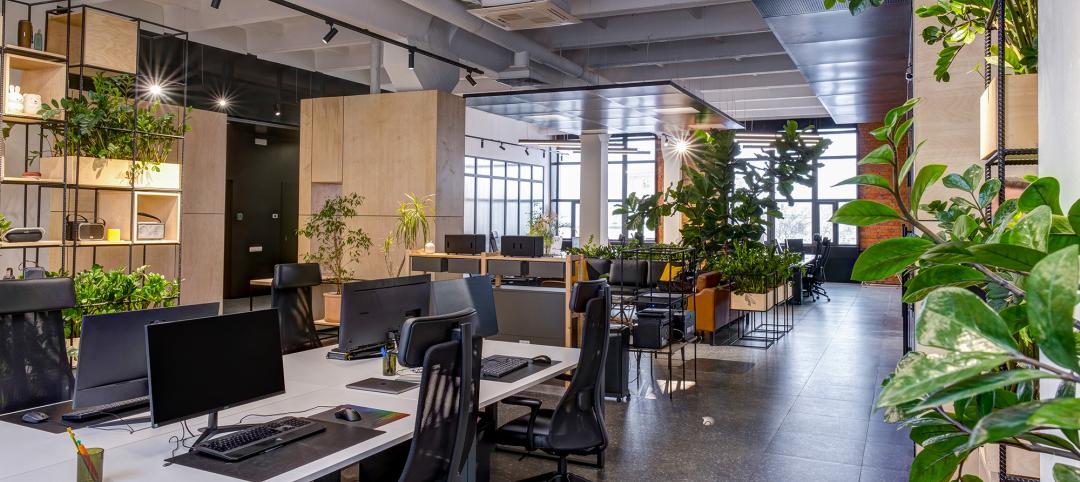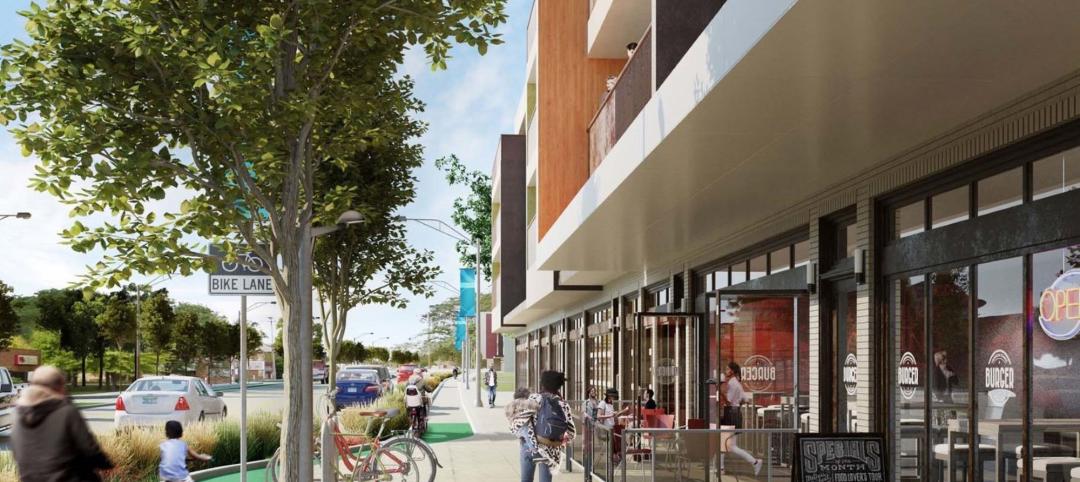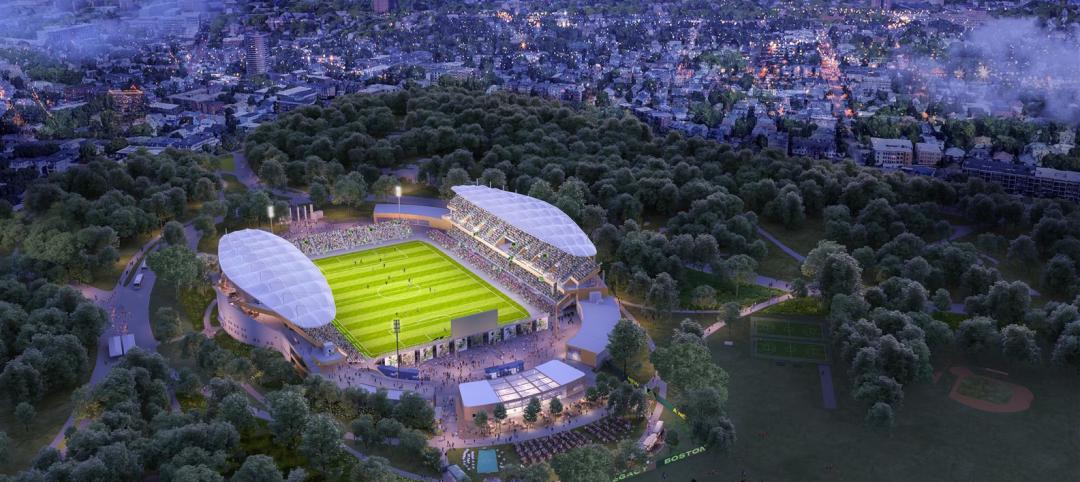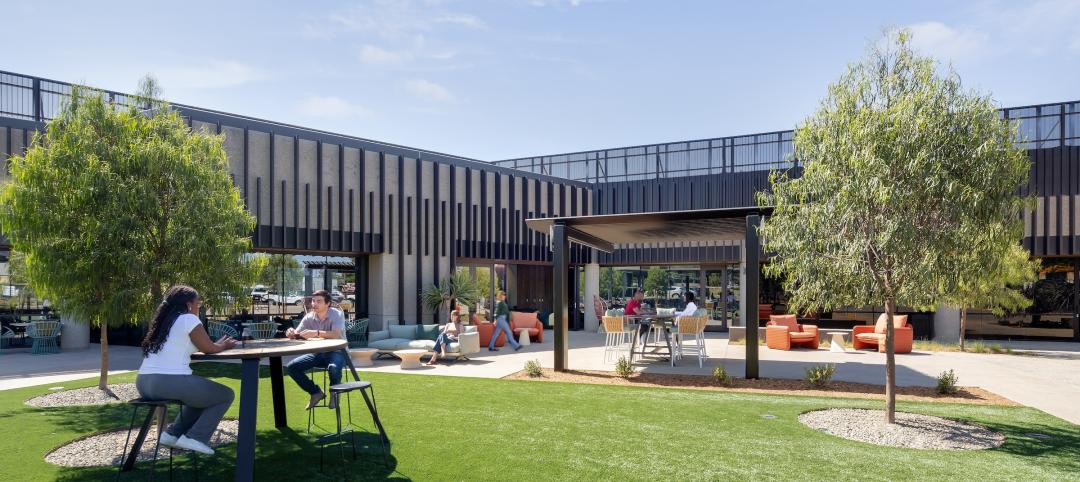Miami’s real estate market has long been a magnet for foreign investors. But developers now report that out-of-town buyers, both foreign and domestic, are seeking homes they can live it, rather than just park money into. The influx of these buyers is having a noticeable impact on how apartments, condos, and townhouses are designed, especially at the luxury end of the market.
The Miami Herald reports on several new multifamily projects whose homes include maid’s rooms, larger terraces, boutique-size closets, and guest suites.
The article points specifically to Paramount Miami Worldcenter, a $1.7 billion mixed-use complex that will blanket 27 acres of Overtown and downtown Miami, as an example of this trend. About 80 of its 513 apartments will include 250- to 280-sf studios with their own bathrooms and bedrooms, which could house a maid, a nanny, or a guest.
Another such project is the 12-apartment Louver House in South Beach, whose 2,400-sf units will include 700-sf terraces that allow residents to enjoy the outdoors more.
In an interview with The Real Deal, Camilo Miguel, CEO of Mast Capital, Louver House’s developer, says that five of the 12 apartments have been sold, at prices averaging about $1,300 per square foot. “We have a mixed group of buyers including a couple of New Yorkers looking to make it a permanent residence. There’s an owner from South America who bought here, an individual from the Apogee. They’re not investors, really. They’re end-users.”
The number of luxury homebuyers in Miami-Dade with New York addresses was up 20% in the first six months of 2015, according to the Herald. Developers are appealing to those buyers and renters who want that semi-urban experience by emphasizing their buildings’ proximity to mass transit. At least one developer, Property Market Groups, is also building smaller, more urban-like units: its 464-unit luxury rental at 300 Biscayne Blvd. called Vice will include studios at 530 sf for about $1,650 per month and one-bedrooms at 600 sf for about $1,800 per month, as well as larger units.
Miami’s attractiveness to out-of-towners continues to be the relative inexpensiveness of its housing, compared to other global cities. Quoting statistics from EWM Realty International, the Herald reports that prices in Miami Beach average $760 per sf, versus $2,204 in New York, $2,948 in London, and $2,331 in Hong Kong. (While Chinese investors account for a minuscule number of residential real estate buyers in Miami, they are seen as a growth market for whom housing units need to be tailored.)
Latin Americans accounted for 68% of all foreign buyers in Miami and Broward counties last year, according to the Miami Association of Realtors. However, number of foreign buyers has been slowing as currency crises rattle economies in Latin America and Europe. Cash sales, which often indicate international buyers, were down 12% in Miami-Dade in June 2015 compared with June 2014.
Related Stories
MFPRO+ New Projects | Oct 30, 2024
BIG’s One High Line finally reaches completion in New York City’s West Chelsea neighborhood
One High Line, a luxury residential project spanning a full city block in New York’s West Chelsea neighborhood, reached completion this summer following years of delays related to investor lawsuits.
Urban Planning | Oct 30, 2024
Bridging the gap: How early architect involvement can revolutionize a city’s capital improvement plans
Capital Improvement Plans (CIPs) typically span three to five years and outline future city projects and their costs. While they set the stage, the design and construction of these projects often extend beyond the CIP window, leading to a disconnect between the initial budget and evolving project scope. This can result in financial shortfalls, forcing cities to cut back on critical project features.
MFPRO+ New Projects | Oct 30, 2024
Luxury waterfront tower in Brooklyn features East River and Manhattan skyline views
Leasing recently began for The Dupont, a 41-story luxury rental property along the Brooklyn, N.Y., waterfront. Located within the 22-acre Greenpoint Landing, where it overlooks the newly constructed Newtown Barge Park, the high-rise features East River and Manhattan skyline views along with 20,000 sf of indoor and outdoor communal space.
Libraries | Oct 30, 2024
Reasons to reinvent the Midcentury academic library
DLR Group's Interior Design Leader Gretchen Holy, Assoc. IIDA, shares the idea that a designer's responsibility to embrace a library’s history, respect its past, and create an environment that will serve student populations for the next 100 years.
Resiliency | Oct 29, 2024
Climate change degrades buildings slowly but steadily
While natural disasters such as hurricanes and wildfires can destroy buildings in minutes, other factors exacerbated by climate change degrade buildings more slowly but still cause costly damage.
Office Buildings | Oct 29, 2024
Editorial call for Office Building project case studies
BD+C editors are looking to feature a roundup of office building projects for 2024, including office-to-residential conversions. Deadline for submission: December 6, 2024.
Healthcare Facilities | Oct 28, 2024
New surgical tower is largest addition to UNC Health campus in Chapel Hill
Construction on UNC Health’s North Carolina Surgical Hospital, the largest addition to the Chapel Hill campus since it was built in 1952, was recently completed. The seven-story, 375,000-sf structure houses 26 operating rooms, four of which are hybrid size to accommodate additional equipment and technology for newly developed procedures.
Multifamily Housing | Oct 28, 2024
A case for mid-rise: How multifamily housing can reshape our cities
Often referred to as “five-over-ones,” the mid-rise apartment type is typically comprised of five stories of apartments on top of a concrete “podium” of ground-floor retail. The main criticism of the “five-over-one” is that they are often too predictable.
Sports and Recreational Facilities | Oct 24, 2024
Stadium renovation plans unveiled for Boston’s National Women’s Soccer League
A city-owned 75-year-old stadium in Boston’s historic Franklin Park will be renovated for a new National Women’s Soccer League team. The park, designed by Fredrick Law Olmsted in the 1880s, is the home of White Stadium, which was built in 1949 and has since fallen into disrepair.
Laboratories | Oct 23, 2024
From sterile to stimulating: The rise of community-centric life sciences campuses
To distinguish their life sciences campuses, developers are partnering with architectural and design firms to reimagine life sciences facilities as vibrant, welcoming destinations. By emphasizing four key elements—wellness, collaboration, biophilic design, and community integration—they are setting their properties apart.


